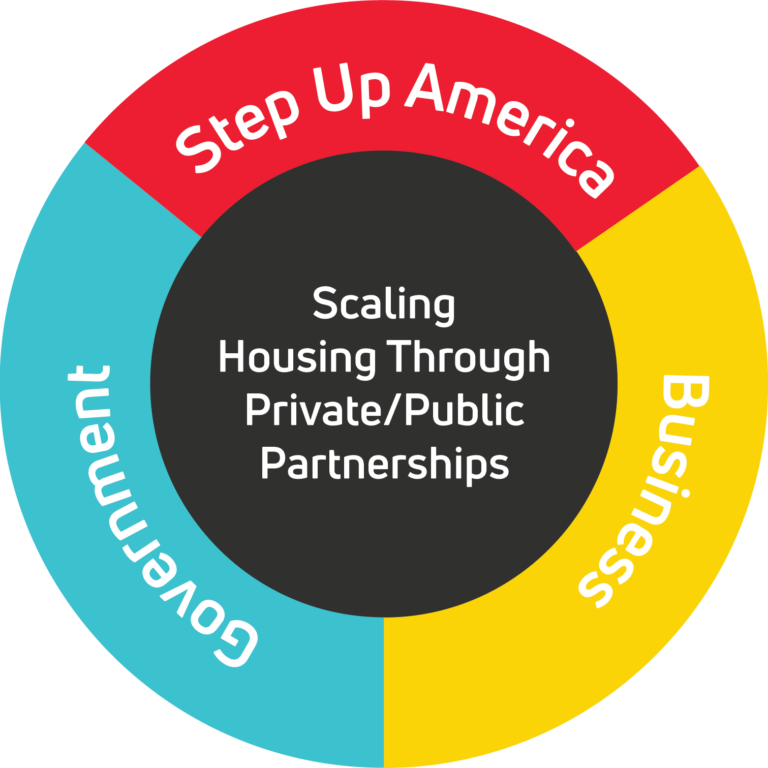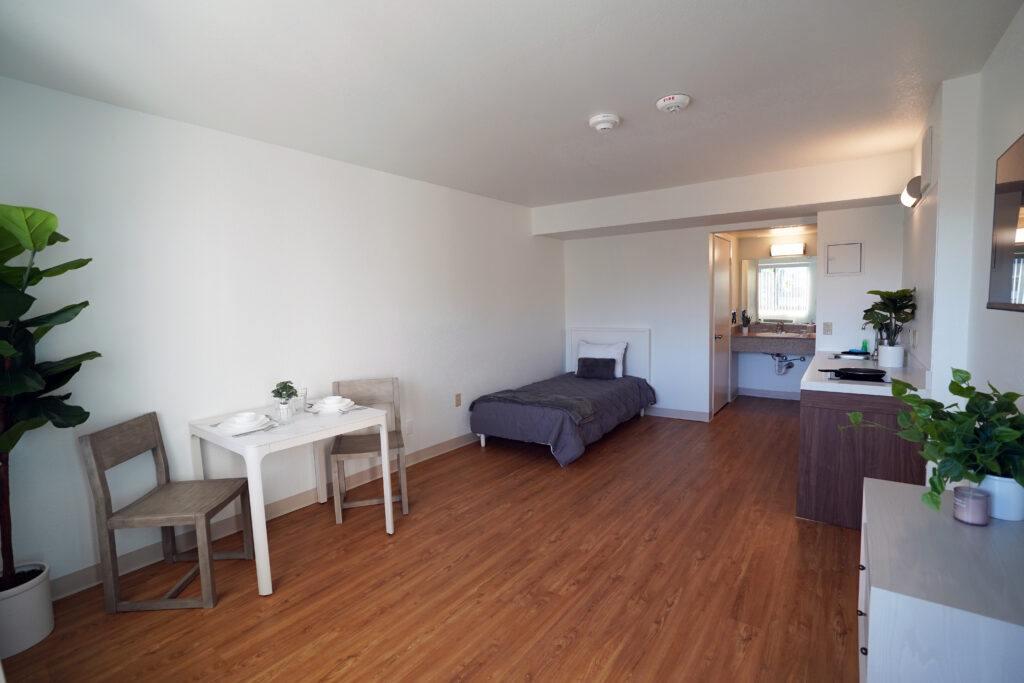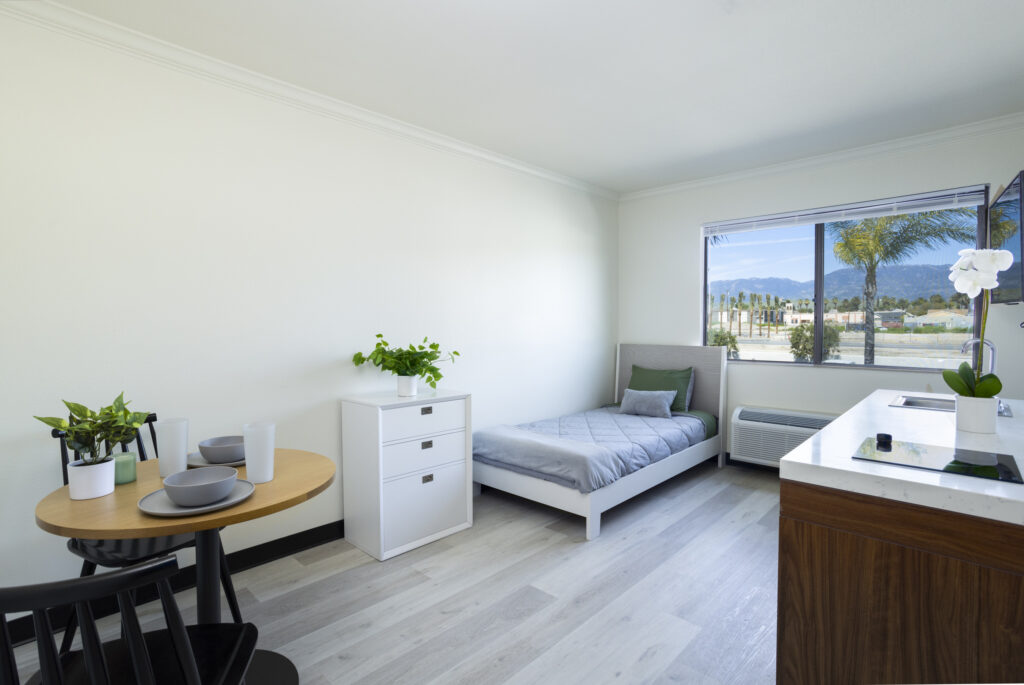Successful motel conversions require forethought, planning, and strong partnerships from both the public and private sectors. Strong partnerships lead to the acquisition of sound financing support, rapid completion of permanent supportive housing projects, and the alignment of appropriate supportive services necessary for high retention.
Objectives must be well aligned amongst all partners and held to higher moral standards. We at Step Up America, continuously hold ourselves accountable to these higher moral standards and is why we go above and beyond — we are at the forefront of change and setting the standard.
Our strong partnerships allow us to complete affordable permanent supportive housing faster and cheaper, yielding more units. Motel conversions can be accomplished in just a few short months instead of the years it takes for new construction.
A permanent supportive housing project has three essential components:
- a source of funds for development (acquisition/rehabilitation),
- a source of the rent payment (housing voucher), and
- a source of funds for supportive services.
In the traditional model, the government underwrites all three; but in the private/public partnership model, private investment funds the acquisition and rehabilitation of the development.
The key benefits of using private investment for acquisition and rehabilitation means that the project is acquired and delivered outside of government funding. This model frees the government of the regulatory complexity of traditional affordable housing projects and allows it to simply fund the supportive services and the rent with housing vouchers. Hence housing can be delivered faster and less expensively while yielding more units.
With the Good Nite Inn motel conversion project in Salinas, Step Up and its partners were recognized by the Monterey Bay Economic Partnership with an award during the 2021 Annual Economic Summit for Private Public Partnerships.

Watch the video below:
This model of motel conversions further reduces costs and delays because motel units can be transformed into efficient apartments quickly. Each unit is given a total refresh, a modular kitchenette is installed, and the motel room becomes a studio apartment – all completed using private funds. It bypasses the long, cumbersome process of securing governmental sources to fund the acquisition and rehab of a PSH project.
The model is also much more cost effective. According to a 2019 analysis by the Terner Center for Housing Innovation, the typical cost per unit to develop new housing in California ranges from $380,000 to $570,000, not to mention new developments can take years to complete. By contrast, motel conversions could cost as little as $130,000 per unit, depending on location and condition, and can be completed in just a few short months.


In the public-private partnership model of motel conversions, the private investor acquires the motel using private monies instead of through government funding. This private capital is also used to rehab the units into studio/efficiency apartments. In bypassing the process of securing government funding for acquisition and rehabilitation, the private partner can avoid the often-significant delays involved with securing government funding. Instead of the typical 6 to 12 months financing contingency in a purchase agreement, the parties are incentivized to complete the purchase quickly, often in as little as 45-60 days.
This model of motel conversions further reduces costs and delays because motel units can be transformed into efficient apartments quickly. Each unit is given a total refresh, a modular kitchenette is installed, and the motel room becomes a studio apartment – all completed using private funds. It bypasses the long, cumbersome process of securing governmental sources to fund the acquisition and rehab of a PSH project.
The model is also much more cost effective. According to a 2019 analysis by the Terner Center for Housing Innovation, the typical cost per unit to develop new housing in California ranges from $380,000 to $570,000, not to mention new developments can take years to complete. By contrast, motel conversions could cost as little as $130,000 per unit, depending on location and condition, and can be completed in just a few short months.